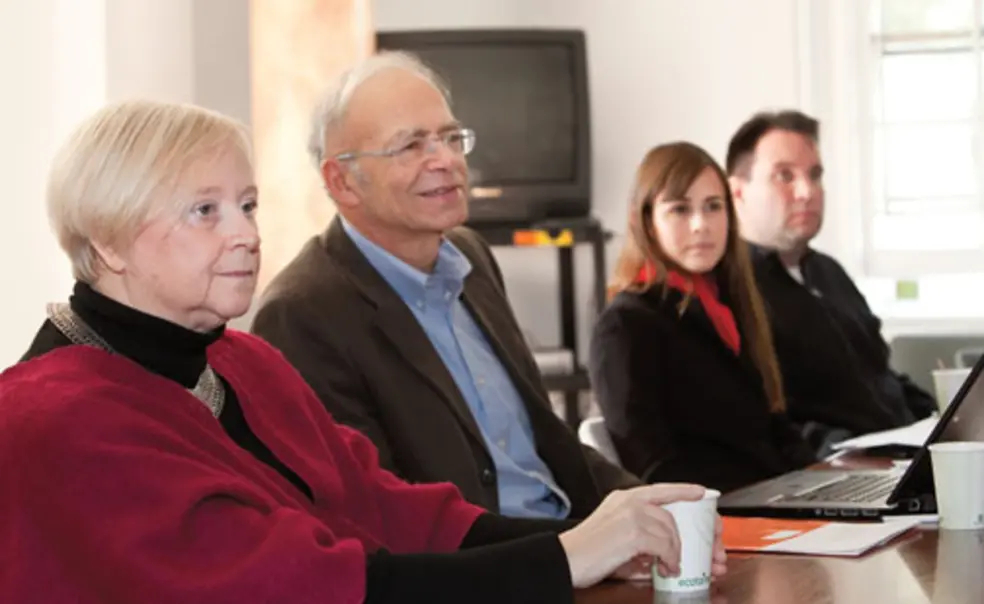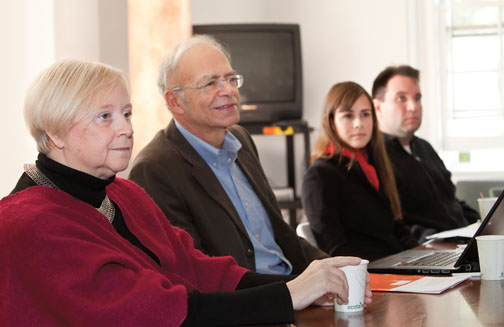It was not the typical setting for an academic conference — the stage of McCosh 50 was set with an Oriental carpet and Egg chairs — but “Open Hearts, Open Minds” was no ordinary gathering. More than 400 people came to campus Oct. 15–16 to see if they could find common ground on one of the most divisive issues of the day: abortion.
“Policy and legislation alone are insufficient to change the nature of the debate,” said Jennifer Miller, executive director of Bioethics International and an organizer of the event. “Changing culture,” she said, “happens through dialogue.”
Attendees included scholars, lawyers, doctors, and activists representing a wide range of views. Among the topics discussed were a woman’s moral duty to the fetus, fetal pain, and the courts’ role in abortion policy.
A session on the moral status of a fetus brought together Oxford law professor John Finnis, Georgetown philosophy professor Margaret Little, and Princeton bioethics professor Peter Singer. Finnis believes that all humans, including the unborn, have the same moral status. The fetus has the capacity — “written into its molecular and cellular constitution” — to develop into a being that can “think and laugh and pun,” Finnis said. But Little’s view hinged on the development of the fetus, which she said “gains moral status as the pregnancy continues.”
Singer agreed that moral status depends on certain capacities, and said that the right to life isn’t guaranteed by mere membership in the human species. He extended this argument to consider newborns and nonhumans. If it is wrong to kill a being that exhibits capacities such as consciousness or self-awareness, Singer said, then killing members of other species with those capacities is equally wrong. Saying that those capacities do not emerge at birth, he suggested infanticide would be permissible “in cases of severe disabilities where parents and physicians think it’s better for the child and better for the family that the child does not live.”
This argument has made Singer one of Princeton’s most controversial professors. He said that his conclusion “might make many uncomfortable,” but that it shares assumptions with both pro-life and pro-choice positions. “It shows that to argue coherently and defensibly against abortion does upset some of our seriously held beliefs, and it’s not something that can be lightly taken,” he said.
For the organizers, the primary goals of the conference were to explore the complexity of the abortion debate, move beyond stereotypes, and engage in civil dialogue. “The fact that we all came together and that we did talk civilly, on the whole, with each other is a great success,” Singer said. “I hope that you will carry that on.”













No responses yet